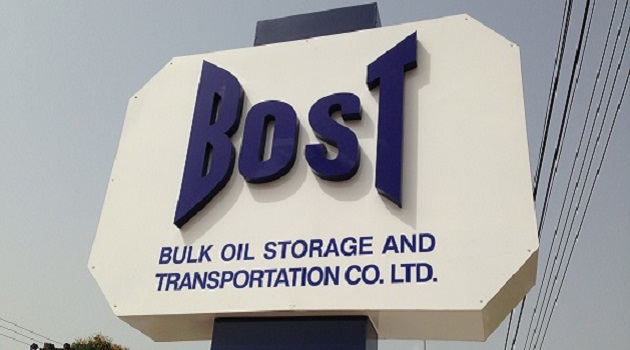The Bulk Oil Storage and Transportation Company Limited (BOST) has referred to the Institute of Energy Security’s (IES) recent request for the abolition of expanded petroleum product margins.
According to BOST, the IES’ reason for the rise in the BOST Margin was “sensationalized.”
Last week, IES urged the government to immediately withdraw the raised levies on those margins in the petroleum products Price Build-UP (PUB).
The BOST Margin, the Primary Distribution Margin (PDM), the Fuel Marking Margin (FMM), and the Unified Petroleum Price Fund (UPPF) Margin were all revised.
However, BOST stated in a statement that the “civil society organisation is merely requesting that the alleged upward changes in margins be withdrawn.”
IES concerns
According to the IES, the UPPF Margin of 3 pesewas per litre has been extended to all liquid goods except premix petrol, MGO Foreign, Gasoil Mines, and Gasoil Rig, as well as a 3 pesewas per kilogram addition to LPG.
Additionally, the PDM has been raised to three pesewas per litre of gasoline, diesel, and kerosene.
Similarly, the Fuel Marking Scheme has increased by up to 167 percent, from 3 to 8 pesewas per litre for all liquid goods.
Additionally, it said that the BOST Margin increased by 100% from 6 to 12 pesewas per litre.
However, BOST explained the following points:
1. On the BOST Margin, it was introduced purposely for the operation and maintenance of the petroleum storage and distribution infrastructure. Given the huge investments made in building these over the years, failure on the parts of successive governments to review the margin from 2011 resulted in massive dilapidation and in some instances, decommissioning of some of these strategic assets. The upward adjustment received was a decision in time to stem the tide of dilapidation and bring these assets back to life and into use. The twisted interpretation is therefore unfortunate and should be disregarded with the full force of every meaningful appreciation of the need to keep stocks of petroleum products for the nation.
2. The Primary Distribution Margin, PDM, the tax in the petroleum price build-up which is utilized in the distribution of petroleum products across depots in the country is targeted at ensuring uniformity in petroleum product prices across the nation. It was under the management of BOST until 2012 when the responsibility was transferred to the National Petroleum Authority, NPA. The categorical statement that BOST is still managing this margin is simply false and should be disregarded.
3. On the GHS3 pesewas upward adjustment in the BOST margin, our initial request was GH9 pesewas to restore the value to the 2011 dollar value. Despite our unsuccessful attempt, the GHS3 pesewas, has been efficiently utilized by the company.
“We at this point call on the public to have confidence in the current management and look forward to nothing but the best from the company”, BOST concluded in its statement.
Read Also: E/R: Robbers attack Metro Mass Transit bus at Begoro police checkpoint
SOURCE: ATLFMONLINE

























